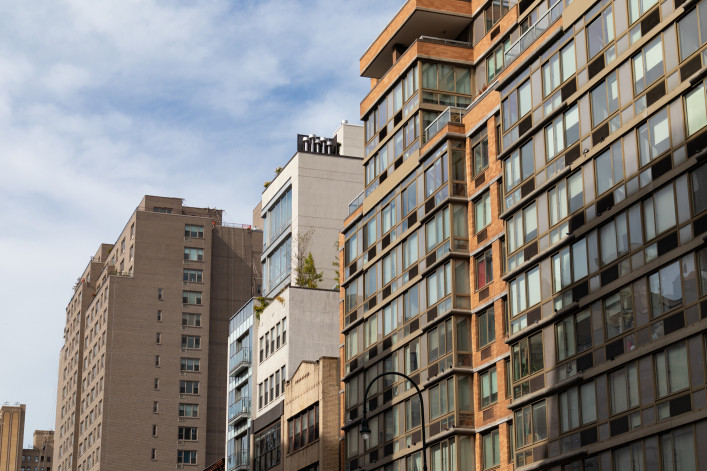3 key reasons why the owner vs. renter ratio matters when buying a NYC condo or co-op
- Having too many non-resident owners or shareholders can make it difficult for a board to secure a loan for renovations
- Without financing, your building may turn to assessments to fund renovations or other capital improvements

You'll want to ensure your building is well managed under a responsible board.
iStock
If you’re looking to buy a New York City condo or co-op, you might find yourself unknowingly considering a building where investors own—but don’t occupy—many of the other units. But that means you and your attorney have a lot to consider before you sign on the dotted line.
“You need to know if there’s a high proportion of people who don’t live there,” said Jonharold A. Cicero, a partner at the law firm DL Partners, which represents condo and co-op buildings throughout NYC. “It can impact the building’s ability to secure financing, potential need for assessments, and the community. You’ll want to make sure the board is proactive.”
It will be up to your attorneys to uncover if this building has a high number of investor or sponsor-owned units, which can prohibit a bank from lending to it, said Christopher M. Tarnok, a partner at DL Partners. That’s especially important if there’s any upcoming capital projects or renovations planned.
“Boards don’t necessarily keep a tally of their investor or sponsor owners and shareholders, so your attorney needs to find out through the building’s management company,” Cicero said. “Our team not only reviews the minutes of the board going back 24 months, but we also look at the last two years of audited financial statements to evaluate a building’s reserves and examine potential future expenses.”
Read on for what you need to know about the other owners or shareholders of your building—before you buy.
It’s a different kind of community
Buyers look for all sorts of things when shopping for a NYC apartment—spacious bedrooms, proximity to parks, an in-unit washer–dryer—but many crave a sense of community that can be hard to find when residents are not staying put long term.
If many of the owners or shareholders rent out their units, you might feel like your building lacks that communal feel, Cicero said. Or worse, you might find your new neighbors are loud and obnoxious recent college grads.
“You don’t want to pay millions for a condo in a nice part of the city and feel like you’re living in a frat house,” Cicero said.
Trouble with financing down the line
More importantly, some banks won’t lend in buildings where many owners or shareholders don’t reside in their units, which can lead to trouble raising funds for building-wide improvements, Tarnok said.
“Usually, 70 percent or more of the units need to be owner or shareholder occupied for a bank to lend on the property,” Cicero said. “You might be stuck paying for major capital improvements through assessments—which no new buyer wants to deal with.”
That’s why the DL Partners team reviews both a board’s meeting minutes and a building's financial statements to find out whether a big building renovation is coming down the pipe.
In need of a responsible board
It’s also crucial to have your lawyers figure out how the building is run. Any property reserve fund should be steadily increasing every year, but that’s especially true of buildings with a high number of non-shareholder or owner-occupied units, as those boards may need to rely on reserves rather than financing.
“You have to make sure it has adequate reserves,” Tarnok said. “Maintenance and repairs will come up in buildings. These buildings are a living thing. Resources need to be allocated for it.”
It’s standard for buildings to require a working capital contribution when an owner sells their unit, but the board should also be steadily raising common charges or maintenance fees on residents over the years to grow the building’s reserves. If a board isn’t proactive, other problems can fester as well—such as allowing residents to fall into arrears.
Having a number of residents in arrears and a high number of non-resident occupied units are two big strikes against your board for a lender, Cicero said.
“Lenders have checklists,” Tarnok said. “If you don’t meet their requirements, there’s not much you can do. Your board has to be proactively growing its reserves, dealing with residents in arrears, and making sure the building runs as smoothly as possible.”
New York City real estate attorneys Jonharold A. Cicero and Christopher M. Tarnok are partners at the real estate law firm DL Partners, offering innovative legal services to co-op and condo boards, developers, condominium sponsors, architects, contractors, property owners and brokers. For a complimentary 15-minute consultation on a real estate matter, send an email to Christopher or call (212) 624-4185.
























